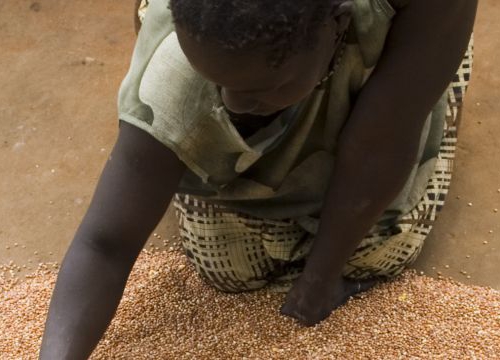The Rights to Food Sovereignty and to Free, Prior and Informed Consent


ICRC
10 April 2018
Should the UN Declaration on the rights of peasants and other people working in rural areas (UN Declaration) currently negotiated at Human Rights Council (HRC) include the rights to food sovereignty and to free, prior and informed consent (FPIC)? Is agreed language available to define these rights in the UN Declaration?
Our new Research Brief The Rights to Food Sovereignty and to Free, Prior and Informed Consent precisely aims at responding to these questions. It presents the protection of these rights at international, regional and national levels and then defines the main elements of the rights that could be included in the UN Declaration.
‘The right to food sovereignty is an overarching right, indispensable for the exercise of other rights of peasants and other people working in rural areas, including their rights to land and other natural resources, a safe, clean and healthy environment, seeds, biological diversity and traditional knowledge’ underlines Dr Christophe Golay, author of this publication and Strategic Adviser on Economic, Social and Cultural Rights at the Geneva Academy. ‘The right to free, prior and informed consent is a key procedural component of all of these rights’ he adds.
Providing Expert Advice to Negotiators
This Research Brief, along with our other Research Briefs on the right to land and other natural resources and the right to seeds and intellectual property rights will be presented at the 5th session of the intergovernmental working group on the rights of peasants and other people working in rural areas, which currently takes place in Geneva (9 - 13 April 2018).
Dr Christophe Golay will participate as an expert in this session which aims to finalize the UN Declaration, based on the discussions held in the previous four sessions as well as during informal consultations.
He will provide expert advice in relation to the preamble of the UN Declaration, article 1 (definition of peasants and other people working in rural areas), article 2 (general states obligations), article 13 (right to work), article 15 (rights to food and food sovereignty), article 17 (right to land and other natural resources), as well as on the matter of collective rights.
‘My participation is a great opportunity to present our research, outline the scope and content of the rights to food sovereignty and to free, prior and informed consent to negotiators and explain why it is crucial to include these rights in the UN Declaration’ stresses Dr Christophe Golay.









